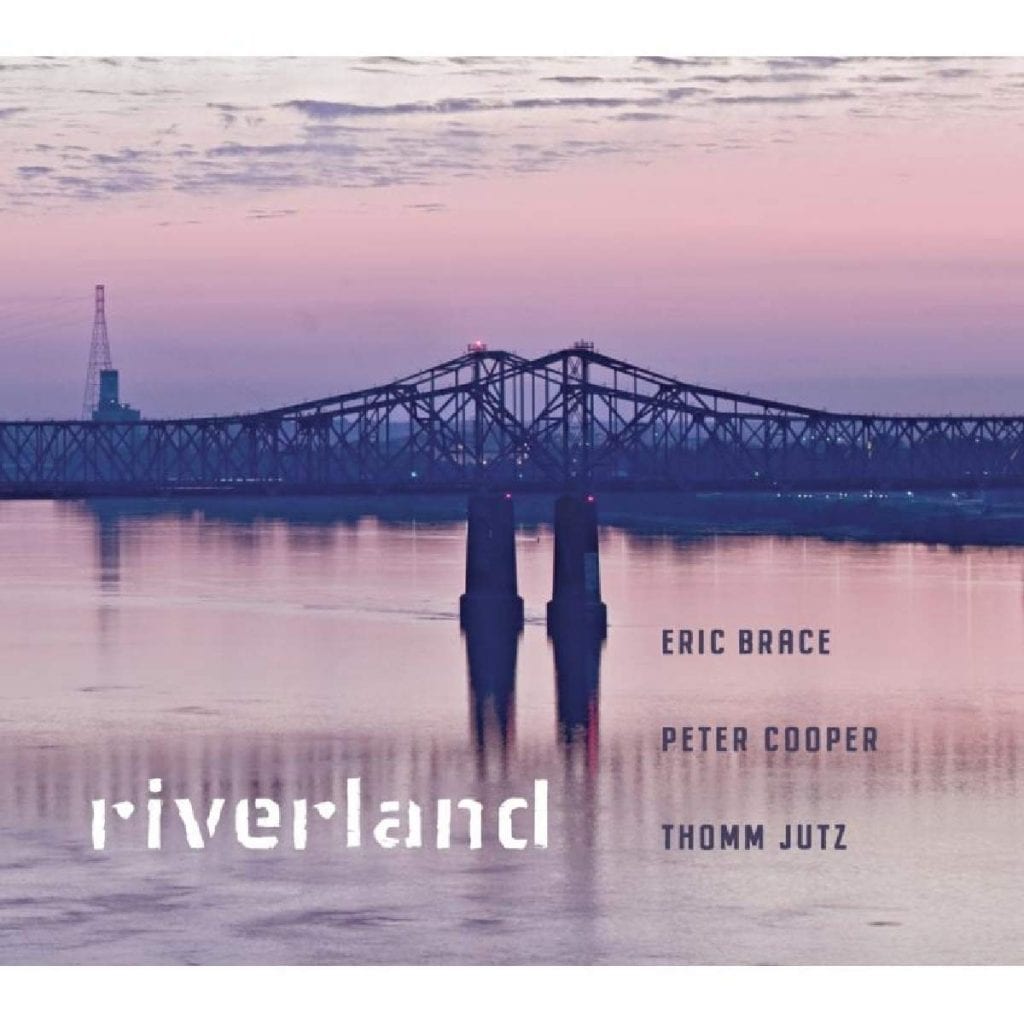
Place haunts us every day of our lives. Memories of certain smells, sights, or sounds rush over us now and again, palpably shaping our responses to life around us but also shifting our perspectives spiritually as we feel the unnameable presence of place enveloping us. We can’t escape place: it forms us, it grounds us, it sometimes betrays us, causing us to try to reconcile this betrayal with our love of place. The literature and the music of the South is firmly grounded in place, and none more so than those stories, novels, and songs emanating from Mississippi.
Three modern-day troubadours — Eric Brace, Peter Cooper, and Thomm Jutz —none of whom hails from Mississippi, understand the pull of place. On their beautifully crafted new album Riverland the three poets use the mighty Mississippi River as the central image for the life that flows in and around it. The three know their way around a story, and each song creates memorable characters set in plucky stories about various facets of life in Mississippi. The legendary riverman Mike Fink is the central character of “King of the Keelboat Men,” and the rapscallion novelist William Faulkner — and his days as a screenwriter in Hollywood — is the subject of “It Might Be Hollywood.” Joining the trio on the album are Mark Fain on upright bass, Lynn Williams on drums, Mike Compton on mandolin, and Tammy Rogers on fiddle. Terry Baucom and Justin Moses lend their banjo skills to a few of the songs.
The funniest song on the album, with its lilting, sideshow music vibe is “Southern Mule,” which depicts the talking animal of the title regaling us with stories of the things he’s seen: “I spent some time with Beauregard / I didn’t have a dog in that fight / I walked off the pasture that night.” The mule has “seen ’em come, seen ’em go,” and is as “wise as you, you common fool.” The album opens with the spare and lovely “River City,” which mimics the dynamic, ever-changing character of little towns on the river: “Some people put their roots down by the river / Where ties that bind will hold but do not tether.”
At the heart of the album are Tom T. Hall and Will D. Campbell, two good friends who preached in their own ways about the foibles of human nature, about their love of good whisky, and their love of good song. Campbell, who called himself a bootleg preacher, presided at Roger Miller’s funeral and worked tirelessly as a civil rights activist. Waylon Jennings thought of Campbell as his preacher, and once said that he cared what Campbell thought of him and that there were very few people whose opinions of him he gave a damn about. Campbell perplexed many of his followers when he acted as the unofficial chaplain for the KKK; he said both blacks and klansmen should be treated with dignity, respect, love, and grace. In “Tom T. Hall and Brother Will,” Jutz sings the part of Hall and Cooper the part of Campbell as the two characters trade lines over the meaning of love and reconciliation: “Don’t you hate those no ’count sons of bitches / Yeah, I do, but then I love ’em all / It’s just the way it’s written down in scripture / This liquor’s gonna be real good come fall.” “Mississippi Magic” opens with a recording of Campbell recalling the events surrounding the admission of the first black student at the University of Mississippi before Cooper launches into a tribute to Campbell’s thought-provoking words and actions and his beautiful spirit: “Brother Will D. Campbell was a good old boy / He just had some crazy ideas / When we were born we were all kin / When we’re dead we’ll be kinfolks again.”
Riverland offers lessons in songwriting from Brace, Cooper, and Jutz. This is one of those front porch albums where you want to sit around and listen to these poets and storytellers — and bootleg preachers, in their own ways — swap stories about the place that haunts them and lives in their hearts and spirits. It’s not too much to say that Riverland stands alongside the best of Tom T. Hall and Mac Wiseman for its ability to take us inside a story and create memorable worlds populated by unforgettable characters.


